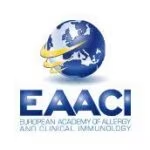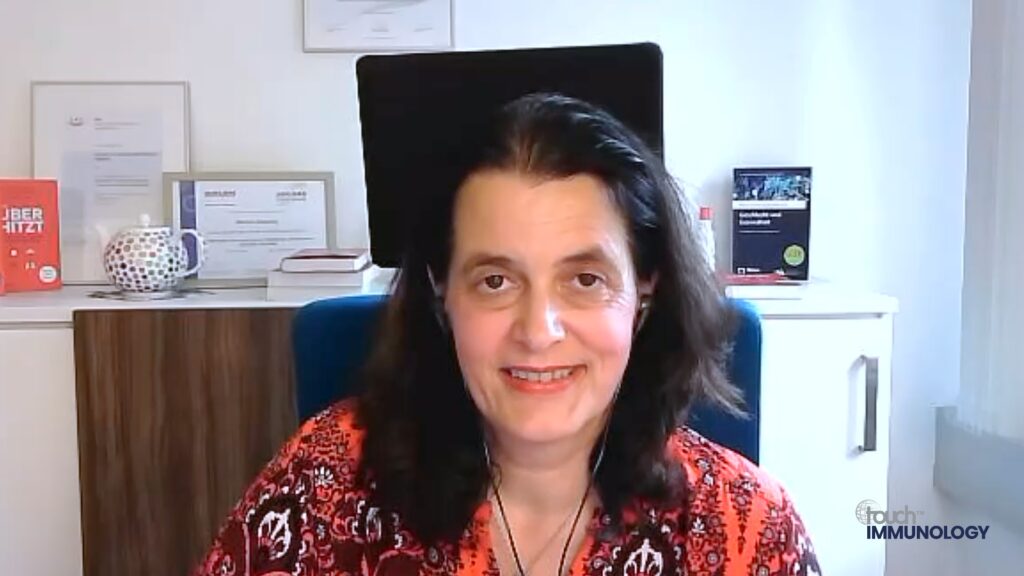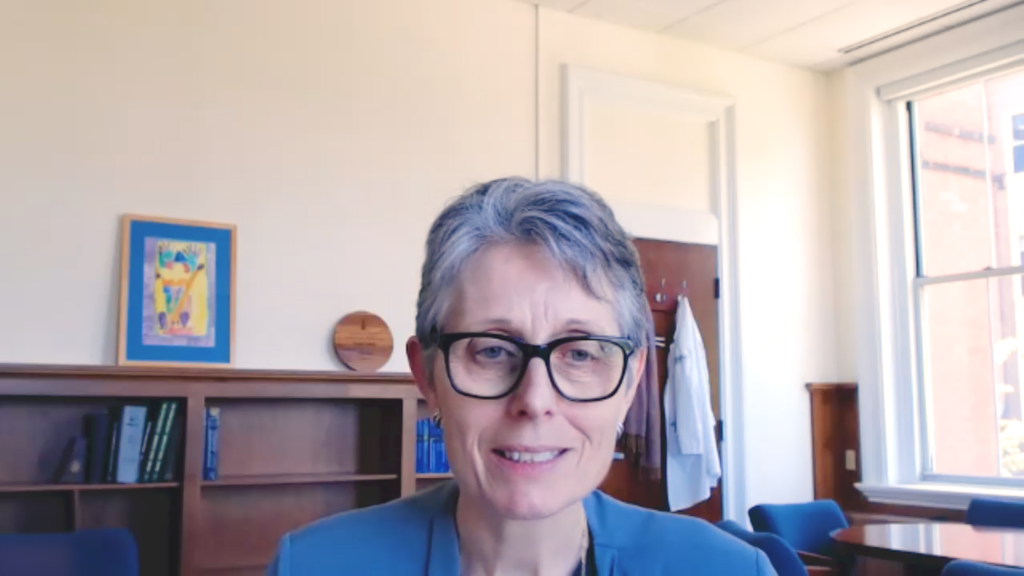The European Academy of Allergy and Clinical Immunology (EAACI) asthma section is actively addressing the current limitations in accurately identifying molecular phenotypes of asthma, optimizing treatment responses and the inclusion of immune mechanisms in the definition of remission. EAACI’s efforts include a focus on advancing endotype-driven care by moving beyond traditional biomarkers such as blood eosinophil counts and fractional exhaled nitric oxide (FeNO). In this article, we explore the current treatment landscape for severe asthma, challenges in asthma care, and how EAACI is working to address these challenges.
The current treatment landscape for severe asthma
Severe asthma treatment has been transformed by anti-type 2 inflammation-directed biologics. However, several problems remain: depending on how response is defined, only 20–40% of patients with severe asthma have an optimal response to therapy with anti-T2 biologics. Currently patients are stratified according to their blood eosinophil count (BEC) and fractional exhaled nitric oxide (FeNO) but even in clinical trials, patients only have a 50% reduction in exacerbation rate, and in some cases improved asthma control and lung function, with reduced need for oral corticosteroid use. This suggests that the current biomarkers are not optimal for adequately identifying molecular subtypes of severe asthma and we need better biomarkers to accurately predict responder/non-responder subjects to specific biologics.
The difference in response to anti-T2 biologics in patients with early-onset compared with late-onset severe asthma despite both sets of patients having eosinophilic asthma indicates distinct molecular phenotypes driving their eosinophilic status. Better biomarkers may help to resolve the optimal therapy for each sub-group of patients. The situation in non-T2 severe asthma is even more problematic as we currently have no biomarkers that define these patients, other than low BEC and FeNO levels. Again, validated new biomarkers are urgently needed. Novel biomarkers may be derived from the nose, breath, sputum, urine or blood.
The challenges faced by patients and healthcare professionals in the care of severe asthma
The challenges associated with severe asthma care include:
- Identifying who will respond to a specific anti-T2 biologic;
- Managing non-response to treatment, even when the patient has eosinophilic asthma;
- Treatment decisions in non-eosinophilic asthma, including whether the patient will need long-term oral steroid therapy; and
- The role of infection in driving the severity of asthma.
How the EAACI asthma section is addressing these challenges
We have set up a task force to investigate non-invasive and semi-invasive biomarkers in severe asthma to review all the available data, highlight knowledge gaps and provide standards for investigating these areas. EAACI has also initiated a Task Force to report on the definitions of disease remission on therapy and the need to link with better molecular phenotyping and biomarker validation.
EAACI Taskforce on non-invasive and semi-invasive biomarkers:
Rory Chan, Senior Clinical Lecturer, University of Dundee, Dundee, UK.
“There are numerous challenges pertaining to asthma management at the moment with our patients. To add to the list, whilst we have an idea that certain features such as blood eosinophils or mucus plugging enhance biologic response, we currently don’t know which biologic is the most effective since there’s a paucity of head to head trials.
There’s a need for standardised, clinically applicable sampling methods for phenotyping patients and tailoring treatments. This requires validation and standardisation of sampling, processing, and analytical techniques across research and clinical settings. The goal is to develop a position paper that outlines methods for assessing upper and lower airway inflammation, which can be used as a reference for clinicians and researchers. Hopefully we can achieve this with the upcoming position paper”.
Ellen Tufvesson, Associate Professor, Respiratory Medicine, Allergology, and Palliative Medicine, University of Lund, Lund, Sweden.
“Even though many asthma and allergy patients are well controlled today, there is a need for further improvement in asthma management and specifically those that are non-respondent to today’s intervention strategies. For this we need to standardize methodology and make it clinically applicable to ascertain non-invasive sampling and subsequent relevant analyses. With the task force, we hope to provide guidance on how to measure and evaluate inflammation and thereby improve knowledge and disease monitoring possibilities. There is then the potential to investigate phenotypes and endotypes and thereby to improve precision medicine”.
EAACI taskforce on the definition of remission in asthma
The taskforce is chaired by Professor Stefano del Giacco (Professor of Medicine and Professor of Allergy and Clinical Immunology, University of Cagliari, Sardinia, Italy), with Dr Ibon Eguiluz-Gracia (Allergy Unit, Hospital Regional Universitario de Malaga, Department of Medicine and Dermatology, Universidad de Malaga, Malaga, Spain) as secretary. The taskforce will expand the concept of remission in patients with severe asthma treated with biologics. Current definitions use clinical measures alone; the asthma taskforce will include immune mechanisms in the airways of these patients, particularly in response to the exposome, as important factors in the long-term control of severe asthma.
Further content in asthma.
Editor: Victoria Jones, Senior Content Editor.
Disclosure: This short article was prepared by touchRESPIRATORY in collaboration with the EAACI Asthma Section. No funding was received in the publication of this article.
Cite: Refining Asthma Care: Advancing Molecular Phenotyping and Endotype Identification Beyond Traditional Biomarkers – The EAACI Asthma Section Executive Committee. touchRESPIRATORY. April 16, 2025.
Register now to receive the touchRESPIRATORY newsletter!
Don’t miss out on hearing about our latest peer reviewed articles, expert opinions, conference news, podcasts and more.










